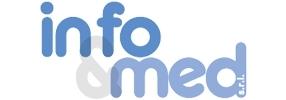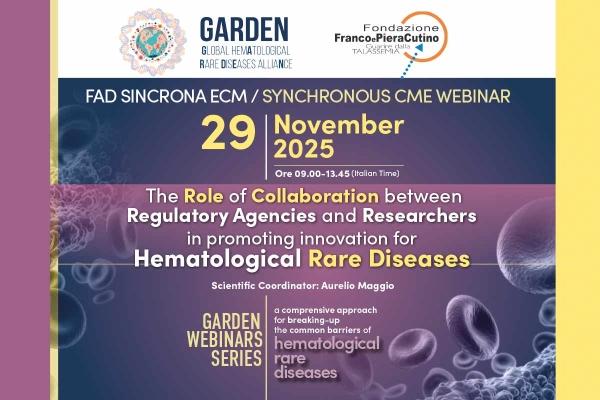Rare hematological diseases, while individually uncommon, collectively impact millions of lives worldwide.
These conditions present significant challenges in terms of early diagnosis, treatment accessibility, and appropriate and effective patient communication. Overcoming these barriers requires a multidisciplinary international network aimed at establishing a common framework for corrective actions.
The role of regulatory agencies in promoting innovation for hematological rare diseases is critical to improving patient outcomes through expedited development and access to novel therapies. Their responsibilities include:
1. Facilitating Accelerated Approval Pathways: Agencies such as the FDA (U.S. Food and Drug Administration), EMA (European Medicines Agency), and others often implement programs like Breakthrough Therapy Designation, PRIME scheme, Priority Review, and Adaptive Pathways to fast-track promising treatments.
2. Providing Guidance and Support: They issue scientific advice, guidance documents, and frameworks to help researchers and pharmaceutical companies develop therapies tailored to the unique challenges of hematological rare diseases, such as limited patient populations and biomarker validation.
3. Encouraging Orphan Drug Designation: Regulatory agencies offer incentives like market exclusivity, tax credits, and grants for developing treatments targeted at rare diseases, thus fostering innovation by reducing financial risks.
4. Supporting Innovative Trial Designs: Promoting adaptive clinical trials, surrogate endpoints, and real-world evidence collection helps accelerate the evaluation process and adapt to the specific needs of rare hematological conditions
5. Promoting Global Collaboration: Agencies often engage in international cooperation to harmonize standards, share data, and streamline approval processes across borders, thereby increasing access to innovative therapies worldwide.
Particularly, EMA and National Regulatory Agencies across EU have established a robust ecosystem of support tools for developers, combining early engagement, regulatory guidance, collaborative networks, compliance resources, and training. These tools are designed to streamline the development and regulatory approval of innovative medicines and health technologies, with a strong emphasis on digital transformation and AI integration. Moreover, a positive benefit-risk balance is essential for marketing authorization. Therefore, Regulatory Agencies work to look at the process as dynamic, according to the evidence-driven, and ensuring that only medicines with a favorable balance of benefits over risks will be available to patients, with ongoing monitoring to safeguard public health. Finally, while drug development for rare diseases faces significant scientific, economic, and regulatory obstacles, Regulatory Agencies make opportunities possible through innovative use of data, technology, policy incentives, and collaborative models. Harnessing these strategies is essential to bring life-changing therapies to patients with rare conditions.
The rapid evolution of treatment options for rare hematological diseases necessitates ongoing education for healthcare professionals on the innovative treatments, on regulatory requirements and available support tools for developers, as well as about the approaches in determining cost vs benefit advantage and the regulation of new tool as AI. This event focuses on several key areas where recent progress has been made in term of academic approaches for the cure of thalassemia, hemophilia and disorders of iron pathways. A model for calculating the cost of gene therapies, according to the different epidemiology of the rare hematological disease in the single country will be presented. Finally, the EMA and EU Regulatory Network approaches to address the challenges posed by innovative technologies and methodologies applied to drug developments will be presented. These issues will be discussed with AIFA representatives who will share their perspective and available support tools for researchers to translate from academic research to the bed of the patient's product.
At the end of the webinar, it will be held with the participation of the associations of the patients, the regulatory agencies, the participating KOL, psychologists and the HTA experts.
GARDEN D’AGOSTINO AWARD FOR INNOVATIVE RESEARCH IN HEMATOLOGICAL RARE DISEASES
The D’Agostino Prize for Innovative Research in Hematological Rare Diseases honors outstanding scientific contributions that advance the understanding, diagnosis, or treatment of rare blood disorders. This prestigious award recognizes groundbreaking research that demonstrates creativity, scientific rigor, and the potential to significantly impact patient outcomes in the field of hematology.
FAD LIVE!
THE ROLE OF COLLABORATION BETWEEN REGULATORY AGENCIES AND RESEARCHERS IN PROMOTING INNOVATION FOR HEMATOLOGICAL RARE DISEASES
FAD
- Inizio iscrizioni: 15-09-2025
- Fine iscrizione: 29-11-2025
- Posti liberi: 429
- Accreditato il: 28-08-2025
- Crediti ECM: 7.5
- Ore formative: 5h
- Codice Evento: 460423
- N. Edizione: 1
Dettaglio
AVVISO IMPORTANTE
29/11/2025
WEBINAR DIRETTA ZOOM dalle ore 9.00
Al termine, ogni partecipante, dovrà sostenere un test di valutazione e compilare il modulo di qualità attraverso la piattaforma
Test e modulo si potranno compilare entro il 02/12/2025
- numero massimo tentativi: 5
- soglia superamento: 75% delle risposte estatte
È OBBLIGATORIA LA PRESENZA PER TUTTA LA DURATA DELLA TRASMISSIONE PER PROCEDERE ALLA PARTE ECM PREVISTA
LA VISIONE DELLA REGISTRAZIONE NON SOSTITUISCE L'OBBLIGATORIETÀ DI PRESENZA ALLA DIRETTA
Presentazione
Programma
29 novembre 2025
DIRETTA WEBINAR dalle ore 9.00
È OBBLIGATORIA LA PRESENZA PER TUTTA LA DURATA DELLA TRASMISSIONE PER PROCEDERE ALLA PARTE ECM PREVISTA
LA VISIONE DELLA REGISTRAZIONE NON SOSTITUISCE L'OBBLIGATORIETÀ DI PRESENZA ALLA DIRETTA
Al termine ogni partecipante dovrà sostenere un test di valutazione e compilare il modulo di qualità percepita attraverso la piattaforma
PASSAGGIO OBBLIGATORIO PER CONSEGUIRE I CREDITI ECM PREVISTI
Test e modulo si dovranno compilare entro il 02/12/2025
Attenzione:
- numero massimo di tentativi a diposizione: 5
- soglia di superamento: 75% delle risposte corrette
IL PROGRAMMA È DISPONIBILE CLICCANDO Locandina IN ALTO PAGINA O Allegati A FONDO PAGINA
Informazioni
Obiettivo formativo
3 - Documentazione clinica. Percorsi clinico-assistenziali diagnostici e riabilitativi, profili di assistenza - profili di cura
Mezzi tecnologici necessari
Per la fruizione della diretta sarà necessario installare il programma gratuito ZOOM, Potete effettuare il download del programma, e le relative istruzioni di installazione su https://zoom.us/download
Procedure di valutazione
Questionario a risposta multipla e doppia randomizzazione da compilare tramite la piattaforma entro il 02/12/2025
Attenzione:
- numero massimo di tentativi a diposizione: 5
- soglia di superamento: 75% delle risposte corrette
Responsabili
Responsabile scientifico
-
 Aurelio MaggioPresident Foundation Franco e Piera Cutino Member of EHA Former President of SITE
Aurelio MaggioPresident Foundation Franco e Piera Cutino Member of EHA Former President of SITE
Relatore
-
 Saverio D'AmicoTeam Leader & Senior Data Scientist (Humanitas Research Hospital)
Saverio D'AmicoTeam Leader & Senior Data Scientist (Humanitas Research Hospital) -
 Paolo FoggiDirettore Settore Innovazione e Strategia del Farmaco / Head of Innovation and Pharmaceutical Strategy Department AIFA
Paolo FoggiDirettore Settore Innovazione e Strategia del Farmaco / Head of Innovation and Pharmaceutical Strategy Department AIFA -
 Aurelio MaggioPresident Foundation Franco e Piera Cutino Member of EHA Former President of SITE
Aurelio MaggioPresident Foundation Franco e Piera Cutino Member of EHA Former President of SITE -
 Andrea MessoriCoordinatore Centro Operativo HTA (Regione Toscana)
Andrea MessoriCoordinatore Centro Operativo HTA (Regione Toscana) -
 Oriana Paixao MarquesBiomedical Data Curator at MAPPING BIO (Freelance), Post-Doc Researcher at University of Heidelberg (DE)
Oriana Paixao MarquesBiomedical Data Curator at MAPPING BIO (Freelance), Post-Doc Researcher at University of Heidelberg (DE) -
 Mirko PinottiProfessore Ordinario di Biologia Molecolare - Direttore Dipartimento – Membro del Senato Accademico - Università di Ferrara
Mirko PinottiProfessore Ordinario di Biologia Molecolare - Direttore Dipartimento – Membro del Senato Accademico - Università di Ferrara


